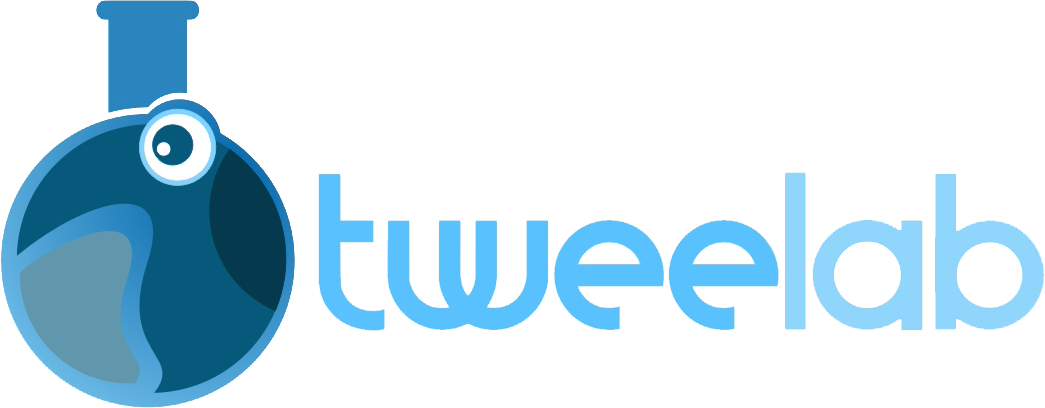As someone who has been blogging for years, I can tell you that choosing the right hosting service is crucial to the success of your blog. While there are plenty of free hosting options available, they often come with limitations and restrictions that can hinder your ability to grow and monetize your blog.
In this article, I’ll be sharing with you the top 10 mistakes to avoid when using a free blog hosting service. From limited customization options to poor site performance and slow loading times, I’ll cover all of the potential pitfalls that could prevent your blog from reaching its full potential.
So if you’re thinking about using a free hosting service for your blog, read on to learn how to avoid these common mistakes and set yourself up for success.
Limited Customization Options

Don’t be trapped in a bland and boring blog with limited customization options – make sure you have the freedom to express yourself fully!
One of the biggest mistakes people make when choosing free blog hosting is overlooking the customization options. Many free blogging platforms offer basic themes that don’t give you much room for creativity or personalization. This can be frustrating if you’re looking to create a unique brand or showcase your individuality.
When selecting free blog hosting, it’s important to look for customization options that allow you to tailor your blog layout, color scheme, and fonts to suit your style preferences. Some platforms may even provide advanced features like custom CSS coding and widgets that allow you to add extra functionality without having to know how to code.
By taking advantage of these customization options, you can ensure that your blog stands out from others and truly reflects who you are as a blogger.
Lack of Control over Your Content

Your options for customization and control over your content may be limited with certain free hosting platforms, potentially hindering the growth and success of your blog. While some platforms offer basic customization options such as choosing a theme and adjusting colors, others have strict guidelines on what you can and cannot do with your blog.
This means that if you want to add specific features or make changes to the design, you may not be able to do so without upgrading to a paid plan. Furthermore, free hosting platforms often have limitations on the types of content you can publish. Some may prohibit certain topics or require approval before publishing anything related to controversial subjects.
This lack of control over your own content can be frustrating for bloggers who want complete creative freedom. It’s important to carefully research any free hosting platform before committing to it so that you know exactly what kind of restrictions you’ll face in terms of customization and content control.
Ads and Branding by the Hosting Service

You’ll quickly notice that the hosting service may use ads and branding to generate revenue for themselves. This can be frustrating for bloggers who want their website to look professional and exclusive. Moreover, these ads can be distracting and take away from the content you create.
It’s important to note that free blog hosting services typically make their money through advertising, which means they have a vested interest in placing ads on your website.
Another issue with hosting service branding is that it can detract from your personal brand. If you’re trying to establish yourself as an expert in your field or build a personal brand around your blog, it’s essential that the focus remains on you and your content.
Branding by the hosting service takes this focus away from you and puts it on the company instead. To avoid this issue, consider investing in paid blog hosting services or self-hosting options where you have more control over branding and advertising on your site.
Limited Storage and Bandwidth

If you’re opting for a budget-friendly hosting service, be aware of limitations on storage and bandwidth. This can be problematic if your website grows or receives high traffic. You’ll need to monitor data usage and regularly delete unnecessary files with limited storage. Limited bandwidth can cause slow or crashed websites with too much traffic.
It’s important to consider these limitations before choosing a free blog hosting service. While it may seem like a great deal at first, it could end up being more trouble than it’s worth in the long run. If you’re serious about growing your website or blog, investing in a paid hosting service with unlimited storage and bandwidth may be the better option.
Poor Site Performance and Slow Loading Times

Experiencing poor site performance and slow loading times can frustrate visitors and ultimately lead to a decrease in traffic. As a blogger, it is important to understand that the free blog hosting platforms may not have the resources to handle large amounts of traffic. This can result in longer load times and even downtime for your website.
To illustrate this point, take a look at the following table:
| Hosting Platform | Load Time (seconds) | Downtime (hours/month) |
|---|---|---|
| WordPress.com | 1.5 | 0 |
| Wix.com | 2.8 | 2 |
| Blogger.com | 3.2 | 1 |
As you can see from the table, some free blog hosting platforms may perform better than others when it comes to load time and downtime. However, it is important to keep in mind that these numbers are subject to change based on various factors such as website traffic and server maintenance. To ensure optimal performance for your blog, consider upgrading to a paid hosting plan or optimizing your website’s content for faster load times.
Security Vulnerabilities and Hacking Risks

Don’t let security vulnerabilities and hacking risks sabotage all your hard work and effort on your blog.
One of the biggest concerns with free blog hosting is the lack of security measures in place to protect your website from cyber attacks. Hackers can easily exploit vulnerabilities in your site’s code or steal login credentials to gain access and wreak havoc.
To avoid these risks, it’s important to choose a reputable blog hosting platform that offers robust security features like SSL encryption, firewalls, and regular backups.
Additionally, you should always keep your software updated with the latest security patches and use strong passwords for all accounts associated with your blog.
By taking these precautions, you can help safeguard against potential threats and ensure that your blog remains a safe space for both you and your readers.
Inability to Monetize Your Blog

Now that we’ve talked about the potential security risks associated with free blog hosting, let’s move on to the next major concern: the inability to monetize your blog. This is a crucial issue for anyone looking to turn their blog into a profitable venture or even just earn a little extra income on the side.
Unfortunately, many free blogging platforms severely limit your ability to make money from your content. One of the biggest limitations of free blogging platforms when it comes to monetization is that they often restrict your ability to display ads. This can be frustrating if you’re hoping to earn revenue through programs like Google AdSense or affiliate marketing.
Additionally, some platforms may prohibit certain types of sponsored content altogether, further limiting your options for making money through partnerships with brands and businesses. Ultimately, if you’re serious about turning your blog into a source of income, it’s important to carefully consider which platform you use and whether it will allow you the flexibility you need to monetize effectively.
No Customer Support or Technical Assistance

If you’re struggling with technical issues or need customer support for your blog, it may be frustrating to find that free blogging platforms often don’t offer these services. One of the downsides of using free blog hosting is the lack of assistance when things go wrong. This can lead to a lot of wasted time and effort trying to troubleshoot issues on your own.
To illustrate this point further, let’s take a look at a comparison table between free blog hosting and paid hosting options:
| Free Blog Hosting | Paid Hosting | |
|---|---|---|
| Customer Support | Limited or None | 24/7 Support |
| Technical Help | Limited or None | 24/7 Assistance |
| Custom Domain | Usually Not Offered | Available |
As you can see, one of the major differences between free and paid hosting options is the level of customer support and technical assistance provided. While some free platforms may offer limited support, it’s often not enough to solve complex issues. Additionally, paid hosting typically allows for custom domains which can enhance your branding and make your website more professional-looking. Ultimately, it’s important to weigh the pros and cons before choosing a blogging platform that meets your needs.
Difficulty in Migrating to a Different Platform

You may find it frustrating and time-consuming to move your blog to a different platform because of the difficulty involved in migration. Free blog hosting services often have proprietary software that’s not compatible with other platforms, making it challenging to transfer all your content seamlessly. Additionally, you may lose some data during the migration process.
To avoid this issue, it’s essential to choose a blogging platform that allows easy migration in case you decide to switch providers or upgrade your website. Before starting your blog, research various platforms and compare their features, including ease of use and migration options.
You can also consult with experts or join online forums where bloggers share their experiences about migrating from one platform to another. By taking these steps, you can ensure that transferring your blog will be hassle-free and won’t affect your online presence negatively.
Overall Limitations and Restrictions of Free Hosting Services

As a blogger, it’s important to be aware of the limitations and restrictions that come with using a hosting service that doesn’t require payment. While free blog hosting may seem like a great option for those just starting out or looking to save money, it’s important to remember that these services come with their own set of drawbacks.
One major limitation is the lack of customization options. Free hosting services typically provide limited themes and plugins, which can make it difficult to create a unique and professional-looking website. Additionally, there may be restrictions on the amount of storage space and bandwidth available, which can limit the amount of content you’re able to publish on your site.
Finally, some free hosting services place ads on your site in exchange for providing you with free hosting – this can detract from the overall user experience and potentially drive away visitors. So while free blog hosting may seem like an attractive option at first glance, it’s important to carefully consider all of its limitations before committing to using one.
Key Takeaway
- Choosing the right hosting service is crucial for blog success, and free hosting options often have limitations and restrictions that can hinder growth and customization.
- Free hosting platforms may not have the resources to handle large amounts of traffic, and security vulnerabilities and hacking risks are a concern with free hosting.
- Custom domains are usually not offered with free hosting, which can detract from personal branding and put the focus on the hosting company.
- The article covers the top 10 mistakes to avoid when using a free blog hosting service, including limitations on customization options, storage space, and the ability to monetize content.
Frequently Asked Questions
Can I use my own domain name with free blog hosting?
Is it possible to remove ads and branding from my hosted blog?
How much storage and bandwidth do I get with free blog hosting?
What kind of security measures does the hosting service have in place to protect my content?
Are there any limitations on the type of content I can post on my free hosted blog?
Final Thoughts
So there you have it: the foolproof way to avoid making mistakes with free blog hosting. By keeping in mind the limitations and restrictions of these services, you can make informed decisions about the best platform for your blogging needs.
While free hosting may seem like an attractive option at first glance, it’s important to consider factors such as customization options, control over your content, and site performance before committing to a service.
With careful consideration and research, you can find a platform that meets both your budgetary constraints and your expectations for quality and functionality.
Happy blogging!

